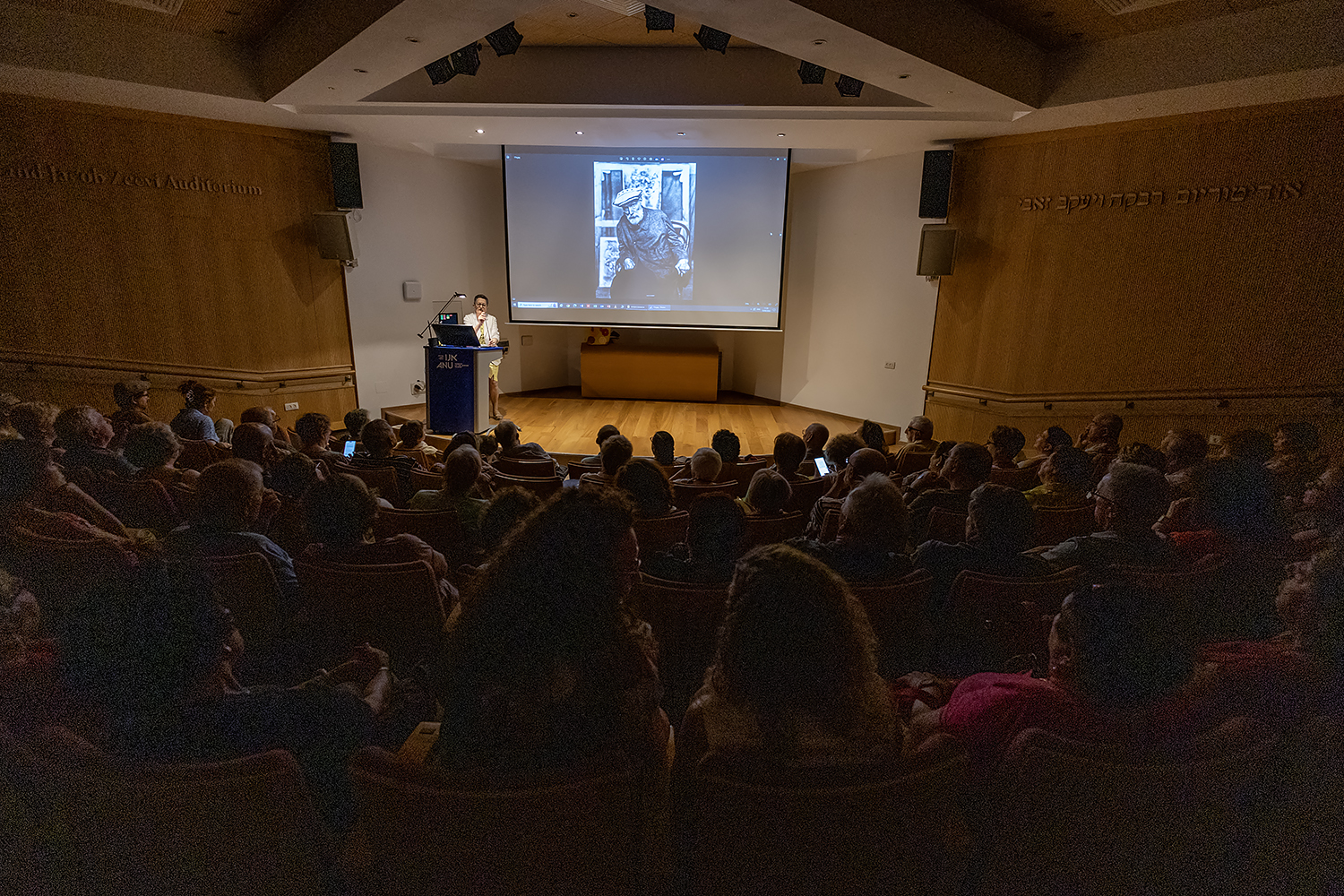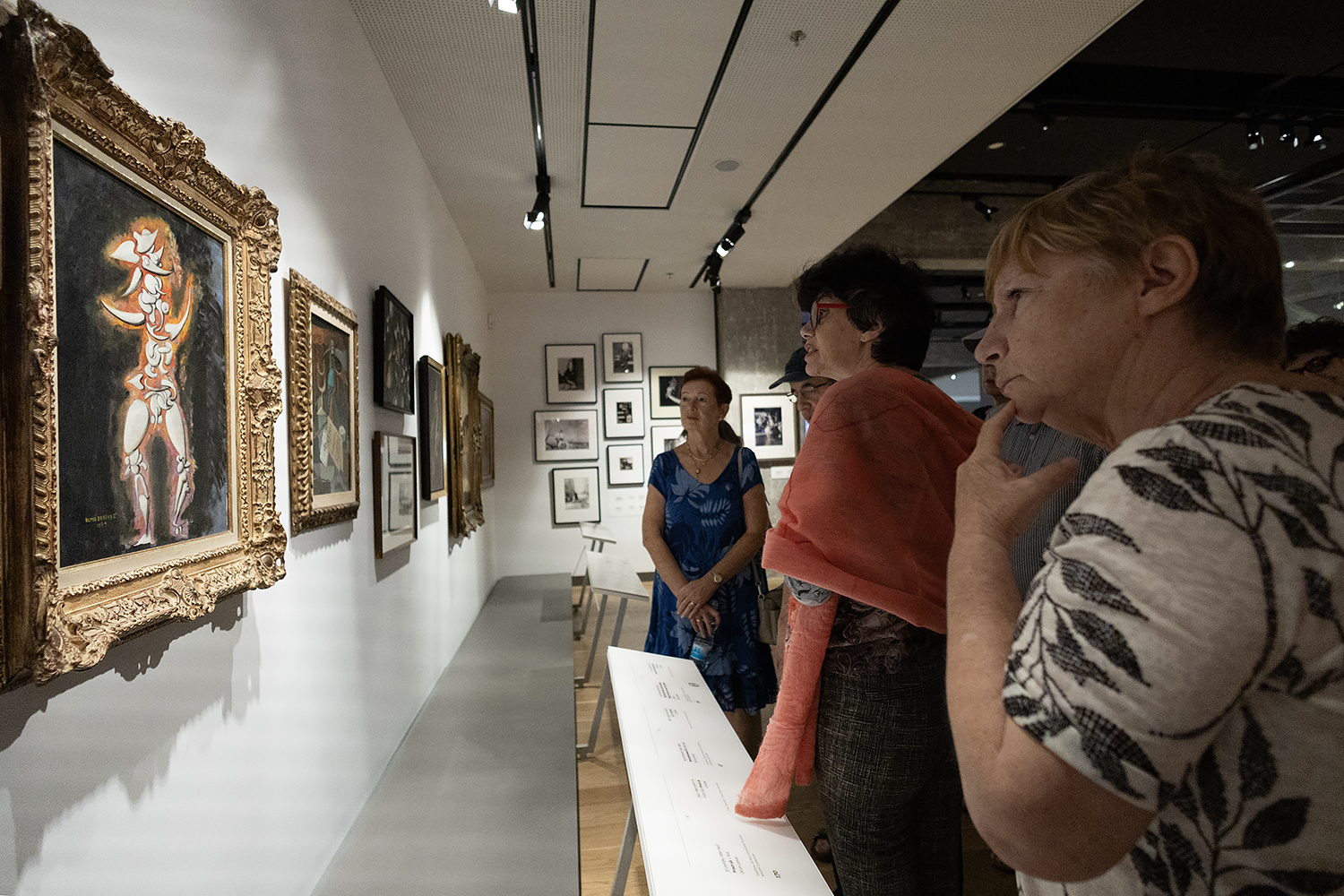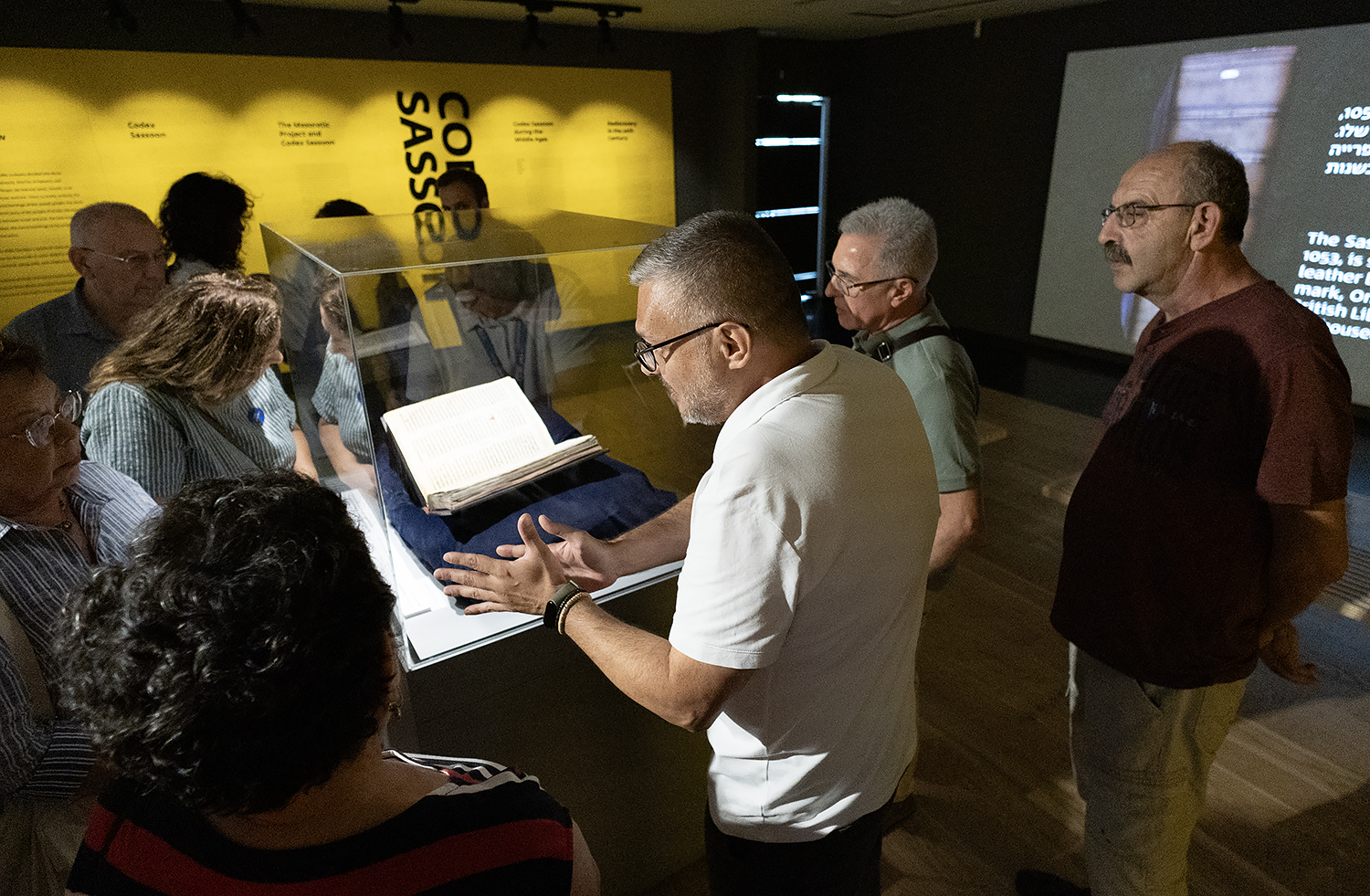The ANU Museum of the Jewish People has a long-standing tradition of Friday lectures. We are proud to continue this tradition and provide educational events for the Russian-speaking diaspora with the support of the NADAV Foundation.
Throughout the year, our museum guests have enjoyed lectures covering significant figures in the art world. On June 28th, philologist Yuliya Patrakova explored how Pablo Picasso’s ‘Guernica’ shaped our perception of war and influenced modern Israeli artists grappling with the 7 October tragedy.In May, art historian Maria Morozova gave a lecture on Ukrainian Soviet sculptor Vadim Sidur, while art expert Yelena Galinskaya spoke about Japanese artist Utagava Hiroshige. Galinskaya also marked the 155th anniversary of Henri Matisse’s birth in her lecture in April, and earlier in January, she covered the art of Matisse’s friend, Albert Marquet. Another Galinskaya’s lecture focused on Polish art deco painter Tamara Lempicka. On April 19th, philologist and art historian Roman Grigoryev highlighted Dutch artist Frans Hals’ contributions to the Dutch Golden Age painting.
Some lectures offered insights across various historical periods through art, sociology, and cultural studies. In January, Israeli artist Aleksander Okun shared an incredible story about Ignacy Scibor Marchocki, a Polish noble and his utopian Minkowce state. Over the year, Dr. Boris Haimovich gave two lectures at ANU: one examining the philosophy of pilgrimage in the ancient world and its portrayal in art and literature, and another focusing on the depiction of Jews in European art. In January, artist Tatiana Savin discussed the representation of food in Soviet art, and in March, she explored the transformation of the female image in art. On June 23rd, Dr. Elena Berman delved into the history and symbolism of engagement rings. Dr. Roman Grigoryev’s November lecture provided a broader context for Rembrandt’s works, including the artist’s models, patrons, and audiences. Finally, in November, writer and literature historian Natalya Gromova discussed Mikhail Bulgakov’s views on Joseph Stalin.


